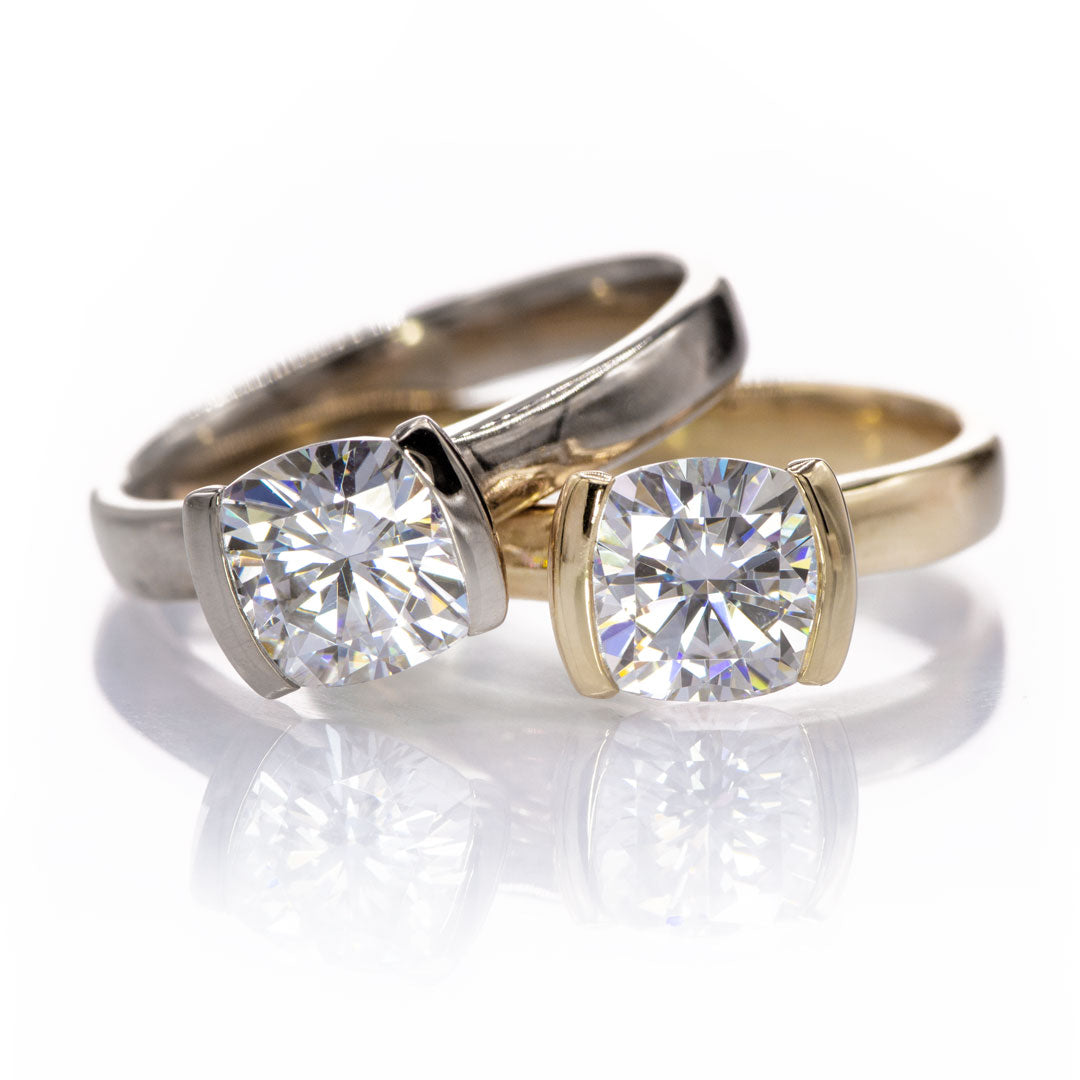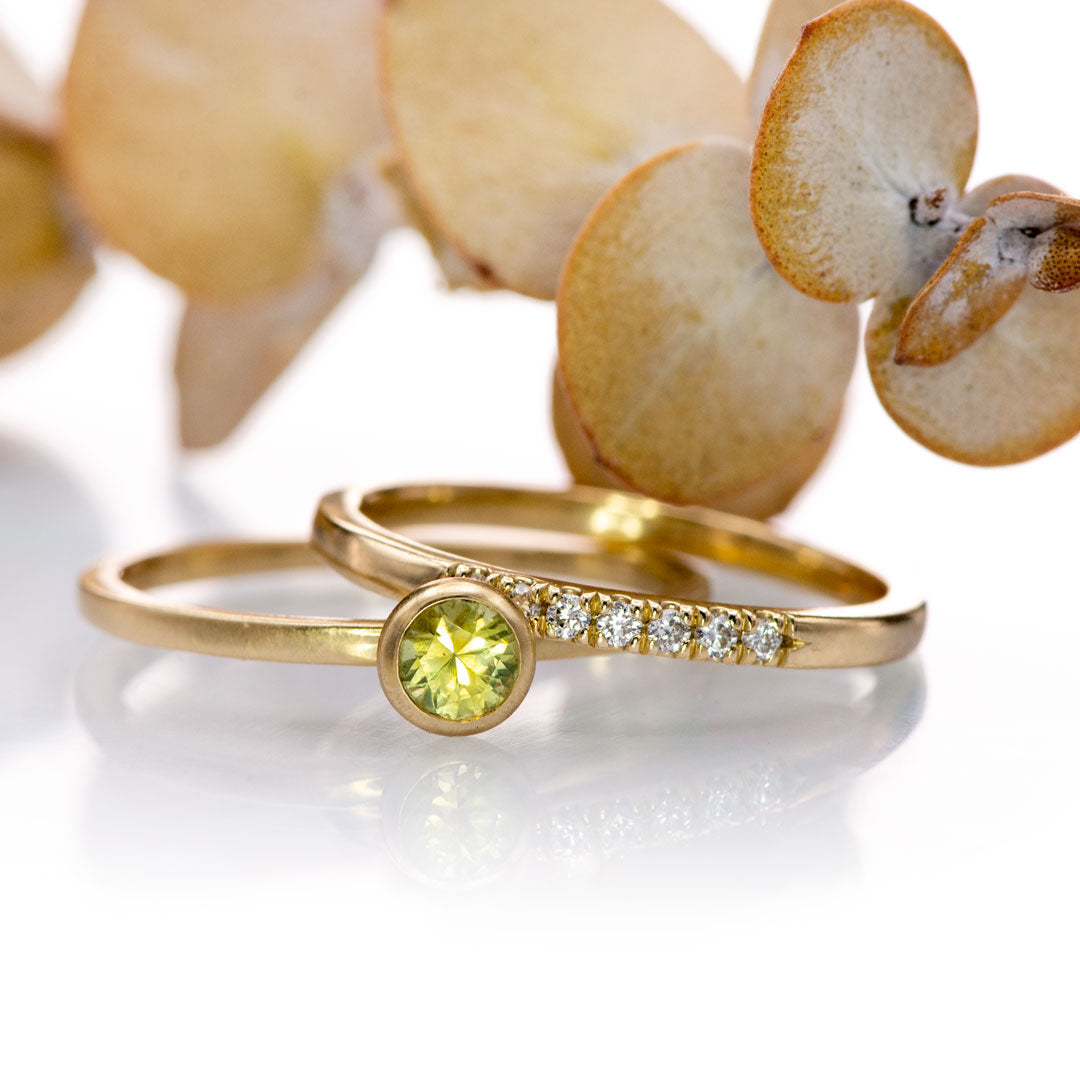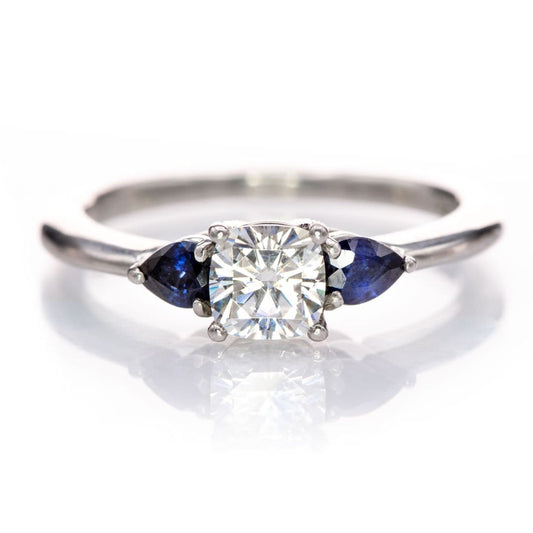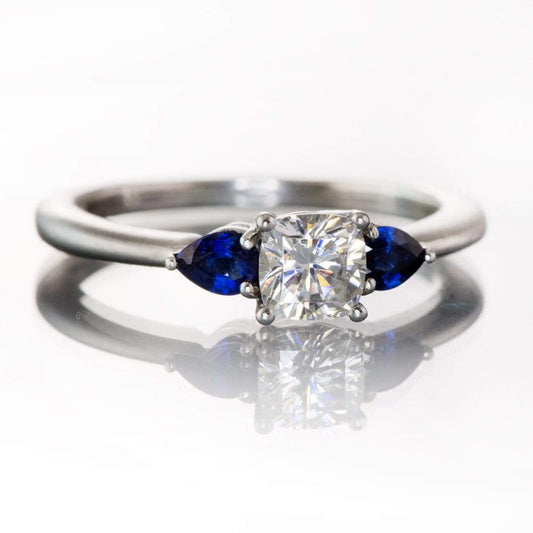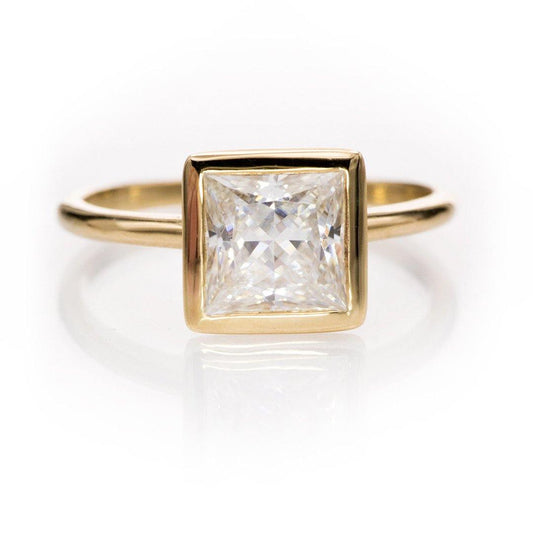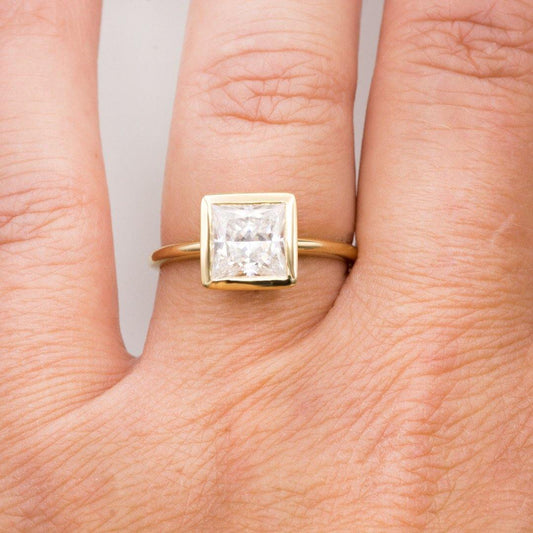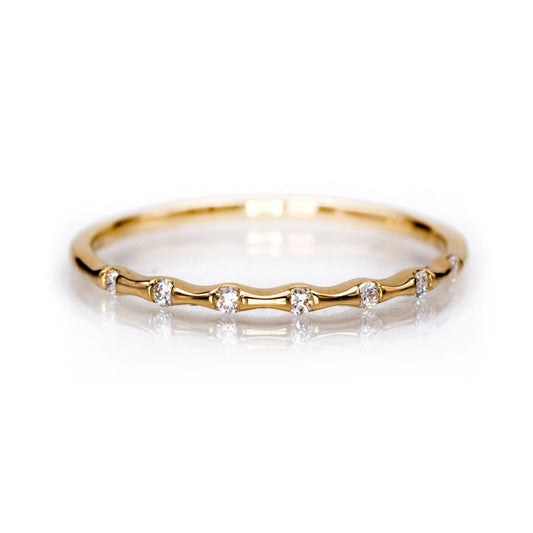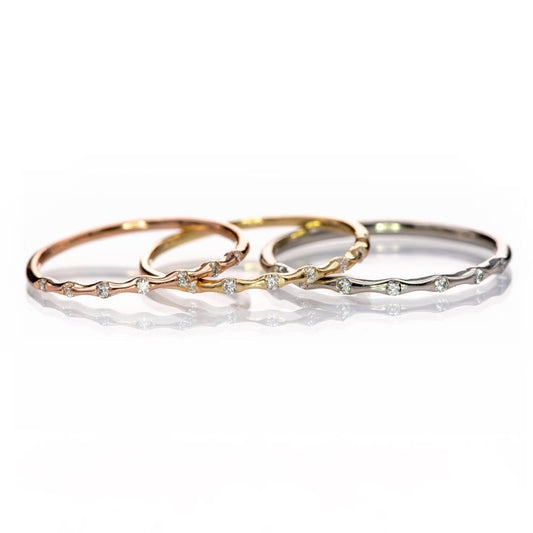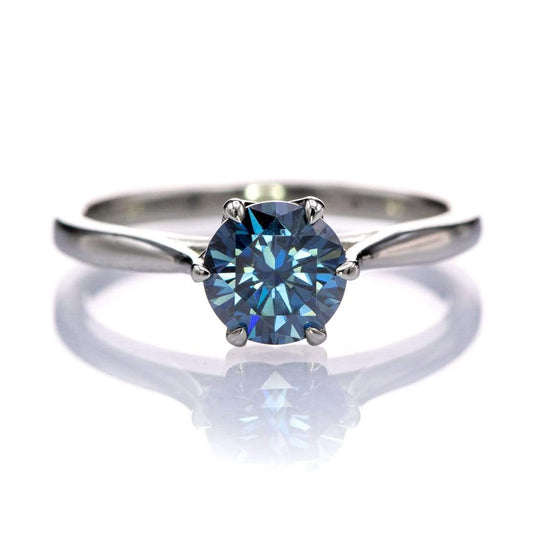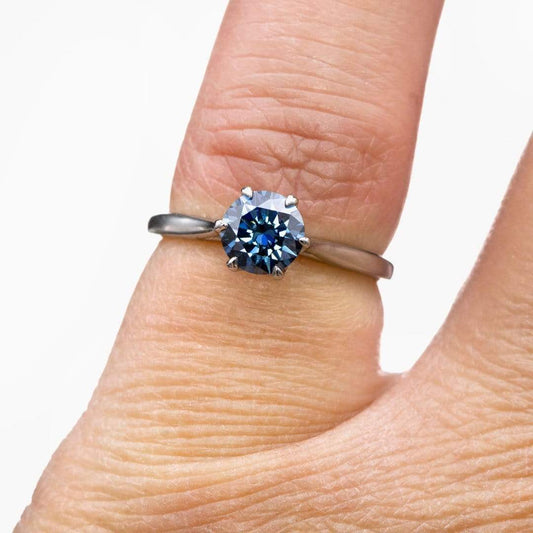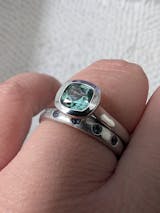How To Clean Your Ring
Share
With a little care your ring will maintain it's beauty for many, many years. With common sense habits, regular cleaning, and careful storage, caring for your engagement ring is pretty easy. More information about proper care and when it's best to take your ring off to avoid damage can be found here.
Ring Cleaning Tips
Simply wearing your engagement ring while washing your hands is not an adequate way to clean it. In fact, soaps and other cleaners used on your hands can cloud and dull your ring. It should be cleaned periodically to keep it sparkly. Especially gemstone rings with light colored pale gems like white sapphires, aquamarines, topaz and many others will look dull and lifeless if not cleaned at least once a week. Diamonds and moissanites due to their unique internal optical properties and fire will look sparkly for a longer time, but still should be cleaned regularly.
Do-it-Yourself Cleaning
The easiest way to clean a ring is with a solution of warm water and mild liquid dish detergent (Dawn works really well). Don't do your cleaning over very hard surfaces like granite counter top or the kitchen sink unless you put down a soft towel. Your jewelry will get slippery and the items could be damaged if they are dropped. Place a plastic Tupperware in your sink, when the ring slips out of your hands it will just fall on soft plastic and not bounce on the hard enamel or steel surface of your sink. Wet the ring with the water/soap solution and use a soft bristled brush like a baby tooth brush to loosen dirt. Gently brush the metal and the stone. Usually there is a hole on the inside of your ring under the setting that allows access to the underside of the stone for cleaning. Use a soft, lint-free cloth to pat the ring dry. Here a video that shows the process.
Store-bought jewelry solutions may also be used for soaking diamond rings. Read the instructions on the label carefully and check for which metals and stones the solution is save to use. Ammonia (in a mild solution with three parts water) is particularly good for brightening yellow gold, but should never be used with fracture-filled diamonds as it may cause the diamonds to become cloudy or discolored. Don't use ammonia solutions on Sterling Silver rings. Some ultrasonic cleaners can also be used on certain stones like diamonds and sapphires but are risky for some other gemstones (see table below). Emeralds, opals, pearls and amber should only be cleaned by a jeweler.
If your engagement ring contains different types of stones, be sure whichever cleaning method you choose is appropriate for all of them. Pearls, for example, are far softer and more delicate than many gems, and can easily be scratched or pitted by cleaning solutions recommended for diamonds.
Never use toothpaste to clean your jewelry. Toothpaste is very abrasive and will scratch any fine jewelry metal, and even some gems.
|
Gemstone |
Moh's Hardness |
Toughness |
Steam Cleaning |
Ultrasonic |
|
Alexandrite |
8.5 |
excellent |
usually |
usually |
|
Amber |
2 - 2.5 |
poor |
never |
never |
|
Amethyst |
7 |
good |
risky |
usually |
|
Aquamarine |
7.5 - 8 |
good |
risky |
risky |
|
Citrine |
7 |
good |
risky |
usually |
|
Diamond |
10 |
good |
usually |
usually |
|
Emerald |
7.5 - 8 |
poor |
never |
never |
|
Garnet |
6.5 - 7.5 |
fair |
never |
usually |
|
Iolite |
7 – 7.5 |
fair |
risky |
risky |
|
Jade |
6.5 - 7 |
excellent |
risky |
usually |
|
Lapis Lazuli |
5 - 6 |
good |
never |
never |
|
Moissanite |
9.5 |
good |
usually |
usually |
|
Morganite |
7.5 - 8 |
good |
risky |
risky |
|
Onyx |
6.5 - 7 |
good |
risky |
Risky |
|
Opal |
5.5 - 6.5 |
fair |
never |
never |
|
Pearl |
2.5 - 4.5 |
good |
never |
never |
|
Peridot |
6.5 - 7 |
fair |
never |
risky |
|
Rose Quartz |
7 |
good |
risky |
risky |
|
Rhodolite |
6.5 - 7.5 |
good |
never |
usually |
|
Ruby |
9 |
excellent |
usually |
usually |
|
Sapphire |
9 |
excellent |
usually |
usually |
|
Smokey Quartz |
7 |
good |
never |
usually |
|
Spinel |
8 |
good |
usually |
usually |
|
Tanzanite |
6.5 - 7 |
fair |
never |
never |
|
Topaz |
8 |
poor |
never |
never |
|
Tourmaline |
7 – 7.5 |
fair |
risky |
risky |
|
Turquoise |
5 - 6 |
fair |
never |
never |
|
Zircon |
6.5 - 7.5 |
fair |
risky |
risky |
Hardness and toughness are not directly related as the table shows. Hardness relates to scratch resistance, a materials ability to stand up to abrasion. Toughness is a measure of the ability of a mineral to absorb energy, and is a measure of how likely a material is to chip or break. Even though diamond is the hardest mineral it can chip and fracture in normal day to day wear and tear.
More gemstone info is available here.
Professional Cleaning
Rings can also be professionally cleaned if they become dirty. Ultrasonic and steam cleaners are the most popular choices among jewelers. If your engagement ring has any serious flaws, such as fractures or cracks in the stone, be sure the jeweler is aware of them because certain cleaning techniques may exacerbate the flaws.
Tarnish
Cleaning does not remove tarnish.Tarnish on sterling silver or silver/palladium ring can develop if they are stored not properly in an air tight zip log bag which will keep it away from air born pollutants. Tarnish develops quickly in a damp environment and is likely to go black in a sulfurous area. Hot tubs and hot springs often have surfur in it's water which will tarnish your jewelry. Keep in mind that some skin care products like Acne solutions do contain sulfur. Do not wear your ring when applying those products and wash your hands before putting your ring back on.
Tarnish is just a thin layer of oxide on the metals surface. In most cases it can easily be removed with a soft jewelry polishing cloth. If you wear your rings every day, tarnish usually does not develop as the rubbing of your skin on metal and the oils of your skin will keep it bright.









